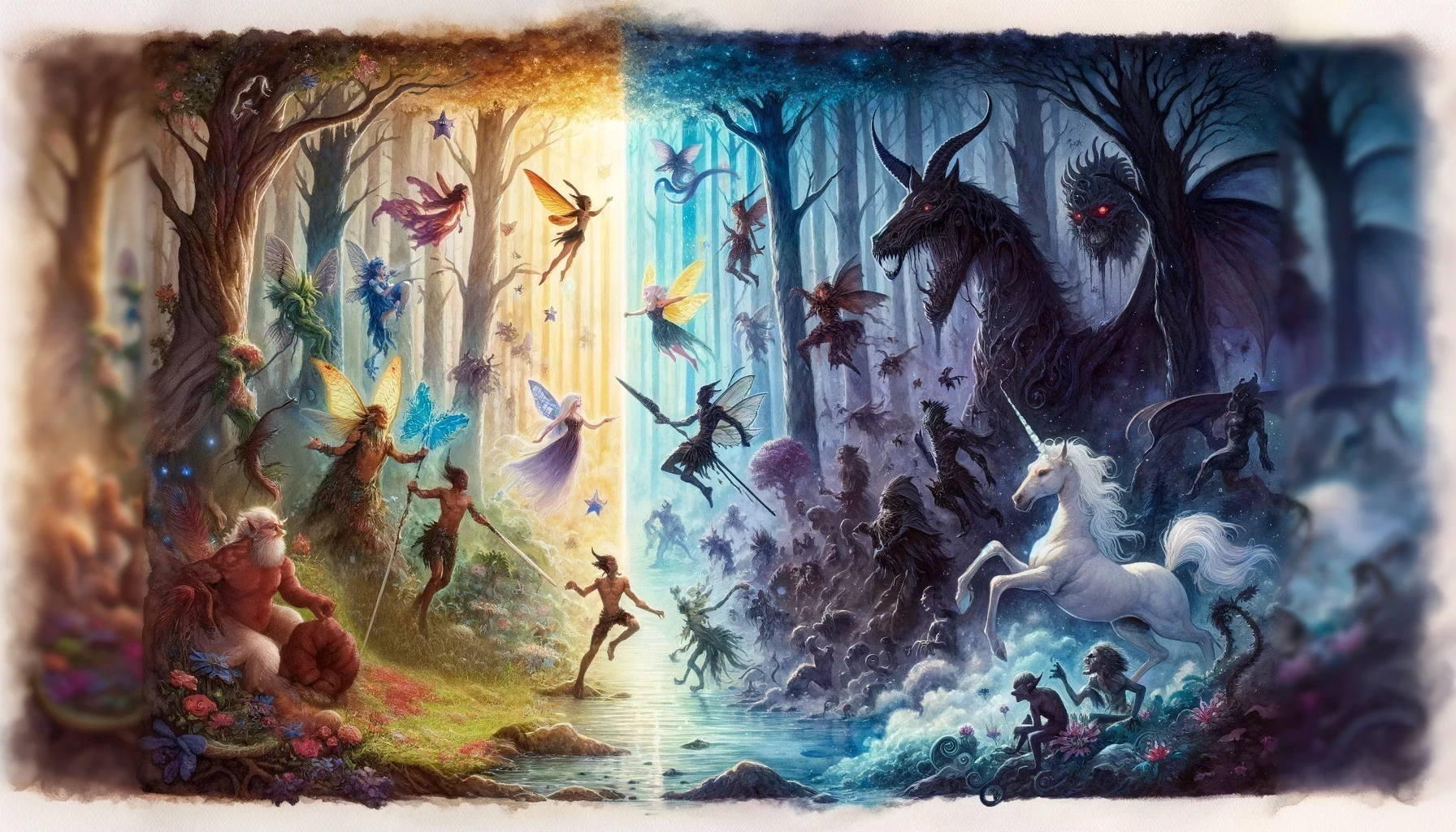top of page

The Clockwork Conspiracy
A busy steampunk cityscape scene



The Clockwork Conspiracy
A busy steampunk cityscape scene
1/4
D&D Debuff
D&D Debuff
Debuff: A term commonly used in Dungeons & Dragons to refer to a negative effect or condition imposed on a character or creature. Debuffs can hamper abilities, weaken combat effectiveness, or impose other detrimental effects.
Debuff: A status effect in Dungeons & Dragons that reduces a creature's abilities or effectiveness in some way. This can include lowering their stats, giving them disadvantage on certain rolls, restricting their actions, or inflicting harmful conditions.
Condition: A specific state that affects a character or creature in some way. Many conditions, such as being Blinded, Paralyzed, or Poisoned, act as debuffs.
Saving Throw: A roll made to resist or avoid a spell, trap, poison, disease, or similar threat. Many debuffs require the target to make a saving throw to avoid or lessen the effect.
Spellcasting: The act of using magic via spells. Many spells, particularly those from the schools of Enchantment and Necromancy, can impose debuffs on targets.
Ability Score: A numerical representation of a character's basic attributes: Strength, Dexterity, Constitution, Intelligence, Wisdom, and Charisma. Debuffs may temporarily or permanently reduce these scores.
Related Topics
Buff: The opposite of a debuff, a buff is a positive effect that enhances a character or creature's abilities or effectiveness in some way.
Concentration: A mechanic tied to some spells requiring the caster to maintain focus to keep the spell active. Many debuffs require concentration to maintain, meaning the caster can't concentrate on another such spell at the same time.
Relevant Rules and Mechanics
Applying a Debuff: Debuffs can be applied in many ways, most commonly through spells, abilities, or attacks that specify a debuff effect. The target may often make a saving throw to resist.
Duration of a Debuff: The duration of a debuff varies. Some debuffs last until the target succeeds on a saving throw, others last for the duration of a spell or ability, and some may be permanent unless removed by specific means.
Removing a Debuff: Depending on the source of the debuff, it may be removed through resting, magic such as the Lesser Restoration or Greater Restoration spells, or through specific class or racial abilities.
Debuffs in Depth: Adding Challenges to D&D Encounters
In Dungeons & Dragons, a debuff is a negative status effect that reduces a creature's effectiveness or imposes penalties. Debuffs can significantly impact a creature's ability to fight, cast spells, or perform other key actions, adding an extra layer of strategy to the game.
Debuffs can come from various sources. A spell might cloud a creature's mind, leaving it at a disadvantage on certain rolls, an enchanting song might charm a character, diverting their actions, or a poisonous trap could sap a character's strength or health. Conditions such as being frightened, poisoned, or paralyzed are all types of debuffs, reducing a creature's abilities or actions in various ways.
Understanding and cleverly using debuffs can turn the tide in battles, nullify threatening enemies, and bring extra depth to your strategic planning. As a player, managing debuffs thrown at you by your Dungeon Master (DM) adds another dimension to gameplay, prompting creative problem-solving and resource management.
However, remember that debuffs, like all aspects of D&D, are not just about mechanics. They're tools for storytelling. The poisoned character, the mind-controlled ally, the weakened villain – these are all debuffs that create tension and drama. So whether you're a DM or a player, consider how debuffs can enhance the narrative and make your game more engaging.
bottom of page




